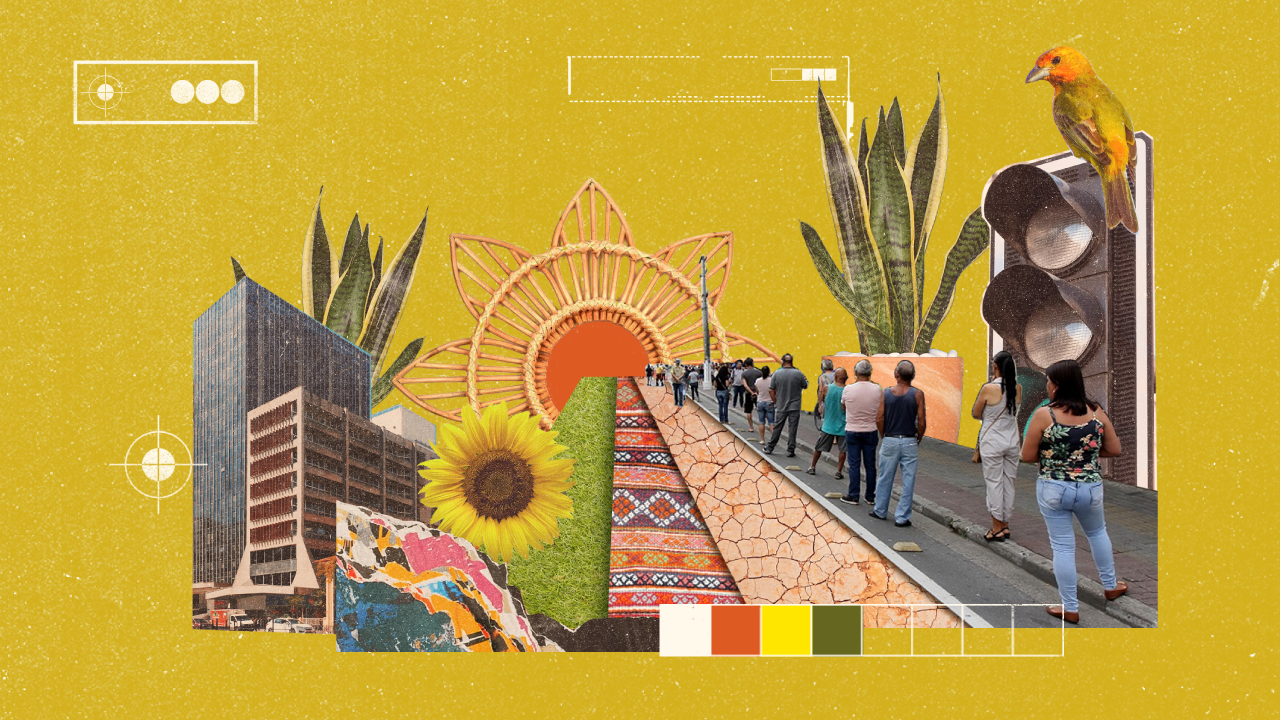Survey Tomorrows of Brazil

Key findings
Brazil's Tomorrows Survey investigated the desired future for the country, in addition to the priorities and proposals that must be taken today to make this future a reality. Conducted by the Museum of Tomorrow with the sponsorship of EY between May and June 2022, the survey involved the participation of 853 people, living in 208 municipalities in 26 states in the five regions of the country plus the Federal District. This sample represents the Museum of Tomorrow audience with a margin of error of 4% and a 95% confidence level. Therefore, it represents the opinions of more than 4.6 million people residing across the country.
The desired future for Brazil has education, equality, and health for the entire population
The main desires for the future of the country mentioned by the survey participants are education (25.3%), equality (18%), and health (10%), followed by respect (7.7%) and peace (6%). Other mentioned desires for the country's future are security (5.3%), opportunities (5%), justice (4.6%), development (4.3%), and an end to corruption (4.2%). These answers were collected through an open-ended question, which allows for more than one answer option.
For the survey participants, currently, Brazil is far from the future they want for the country. However, they believe that this future can be turned into reality by 2030 with government and society action.
93.4% of the survey participants consider that the country is currently far from the future they want, with 73.2% believing that this desired future is very far away and 20.2% believe that it is a little far away. 6.7% consider the future they want for the country is close to becoming a reality. Despite this, 80.8% of the survey participants believe that the future they want for the country can be turned into reality by 2030, with 63.4% saying that this future can be achieved through the action of governments and society.
Although they consider the future they want for the distant country of today, the survey participants enjoy to live and want to continue living in Brazil
66% of survey participants enjoy to live and want to continue living in the country. On the other hand, 20.4% enjoy to live in the country, but would rather move out; 11.1% do not enjoy to live in the country. Among them, 5.9% prefer to continue living in the country and 5.2% prefer to move out.
Survey participants want to actively participate in building the future they want for the country
When they think about the distance that the country is currently from the future they want, the main feeling provoked in the survey participants is the desire to actively participate in this change (54.3%), regardless of whether they believe that the desired future is close or far from turn into reality. Among those who consider that the desired future is far from reality, the feelings mentioned were impotence (47.1%), fear (31.4%), and anger (19.7%). Among those who consider that the desired future for the country is close to becoming a reality today, trust (8%) and happiness (2.1%) were mentioned. Other feelings mentioned by survey participants not listed among the options for the question were sadness, anger, frustration, indignation, hope, disbelief (4%).
Survey participants believe that voting is the main way in which they can contribute to building the future they want for the country.
Most survey participants believe that voting is the main way in which they can contribute to building the future they want for our country. The other most mentioned actions are doing your own part, paying taxes, respecting others, among others. In addition, 33.2% of the survey participants did not answer this question and a small portion said they do not know what to do (0.6%) or feel powerless (0.6%).
For survey participants, quality education, the protection of biodiversity, decent work and economic growth, in addition to strengthening partnerships and means for implementing sustainable development, must be priorities in creating the desired future for the country in the social, environmental, economic and governance areas, respectively
In the opinion of the participants, the three priorities in the social area should be quality education (40.2%), the reduction of inequalities (31.2%) and the eradication of poverty (12.1%).
In the environmental area, priorities are the protection, restoration and promotion of the sustainable use of terrestrial ecosystems and the prevention of the loss of biodiversity (45.7%), clean water and sanitation (20.9%) and sustainable consumption and production (14.9%).
In the economic area, the priorities are decent work and economic growth (40.1%), in addition to the development of sustainable cities and communities (39%).
And in the governance area, strengthening partnerships and means of implementation for sustainable development should be the top priority (52.3%).
Museum of Tomorrow is an Applied Sciences museum which explores the opportunities and challenges which humanity will be forced to tackle in the coming decades from the perspective of sustainability and conviviality. Launched December 2015 by Rio de Janeiro City Hall, Museum of Tomorrow is a Culture asset from Rio's Secretary of Culture currently managed by Instituto de Desenvolvimento e Gestão (IDG). Example of a well-succeeded partnership between public power and private initiative, it has already received over three million visitors since opening. With Santander Bank as a Master Sponsor and a wide network of partner sponsors as Shell, IBM, IRB-Brasil RE, Engie, Grupo Globo and Instituto CCR, the museum was originally conceived by Roberto Marinho Foundation.